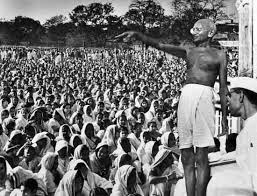India hosts more believers now than at any time in its 4,000-year history
In Uttar Pradesh, Dr. M. A. Raju, a Christian neurologist, heads the Mujwa Mission Hospital. Raju is convinced that this most densely populated region of India is the key to its future. His strategy for spreading the gospel is centered on providing quality health care and basic education for the poor. Great work being pioneered in India is yielding fruits. With its people turning to Christ in waves, India hosts more believers now than at any time in its 4,000-year history.
Raju has a deep brown face fringed with an ice-white beard. Born in south India to a family of Christian doctors, Raju trained at Vellore, a well-known Christian hospital. Doubting his childhood faith, Raju spent years searching for a belief system that would sustain him. He pondered the great Hindu epics, practiced yoga, worked a stint with Mother Teresa in Kolkata, and studied Islam. His greatest influence turned out to be Francis Schaeffer, the late Christian author and apologist whom he first read in medical school and later spent a summer with at Schaeffer's retreat in L'Abri, Switzerland.
Raju carried his questions on to Israel, where he worked in a Christian hospital for Arabs. There he met a Scottish nurse who was struck by his kindly way. "He was the first really Christian doctor I had ever met," Rani says with a smile. Raju settled his remaining doubts, married Rani, and moved to England. He became a highly successful neurologist while working on the side to integrate psychology with Christian faith. He offered seminars on pastoral counseling to groups all over the United Kingdom.
He was pulled back to India, first raising money for missions, then becoming involved in planning and strategy. Finally in 1991, he and Rani moved to India with their four English-born children. Seven years ago, he took over Mujwa, a sprawling mission hospital that was about to shut down after a long decline. Raju could not bear to see it lost. "Wherever missionaries have gone, whatever their mistakes, the Holy Spirit is there. It's very difficult to get a beachhead. I didn't want to give it up."
The hospital's buildings were in disrepair, and local hostility was high. Several times fundamentalist mobs invaded the grounds, beating up staff. But Mujwa, while still ramshackle, is on the upswing. The hospital first concentrated its resources on basic medical care for the most poor. Soon, other ministry opportunities popped up. The grounds serve as a training center, preparing hundreds of primary school teachers and church planters, and offering vocational training—for electricians, air conditioning technicians, tailors, dental technicians, and others.
Holistic Model
Today, everything at Mujwa is geared to spiritual, social, medical, and economic transformation. A visit to a nearby village takes me to one of Mujwa's informal primary schools. Traveling on narrow roads through lush fields, we reach an unpaved track that ends at narrow streets snaking between mud houses. On open land next to the village, boys play cricket with handcarved bats. Since this is a school day, their presence indicates how little the village values education.
'Jesus came in a dream and said to me, "Don't worry, I will make your people come up." '— says Tissani, a Dalit teacher. But the government schools are terrible, everyone says. The teachers are often absent and show little interest in students' welfare. Mujwa offers to help villages start a school if they provide a teacher—a villager who has a high-school education and a good reputation.
Mujwa does not seek Christian teachers, because the few who identify as Christians are often alienated from the village. Rather, Mujwa offers two months of teacher training that includes immersion in Christian teaching and worship. Most of the time, they say, teachers begin to follow Christ during their training. The 220 teachers who have stuck to the job get tremendous respect in the village because of their role. And they begin to bring others to Christ.
Such inclusive approaches have met a tremendous spiritual openness. Evangelists saw only a handful of baptisms around Mujwa in the previous generation. They have seen 8,000 in the past five years.(1)
I met Dr. Raju in September of 2007 in Varanasi and found him to be a simple, God fearing, and humble Brother in the Lord. I spent about a week in Mujwa ,Bhadohi and Allahabad. I saw the dedication and the mission orientation of the people who were working there. His strategy for spreading the gospel is centered on providing quality health care and basic education for the poor. May God use him very mightily in the days to come.
It's not the amount of our work that's important, or the status of it, or the notoriety of it. It's the faithfulness with which we do exactly what He has assigned us. Our lives and labors call for perseverance, persistence, patience, and prayer.
If God has assigned our daily tasks, He'll produce an eternal harvest. Don't give up; and don't worry if the work seems small, the costs large, or the results meager. Just be faithful to the will of God--nothing more, nothing less.
References:
(1) India's Grassroots Revival, (pg 4,5) July 7th 2011 ,Christianity Today, by Tim Stafford
Blessings,
Raj Kosaraju
.jpg)

Comments
Post a Comment